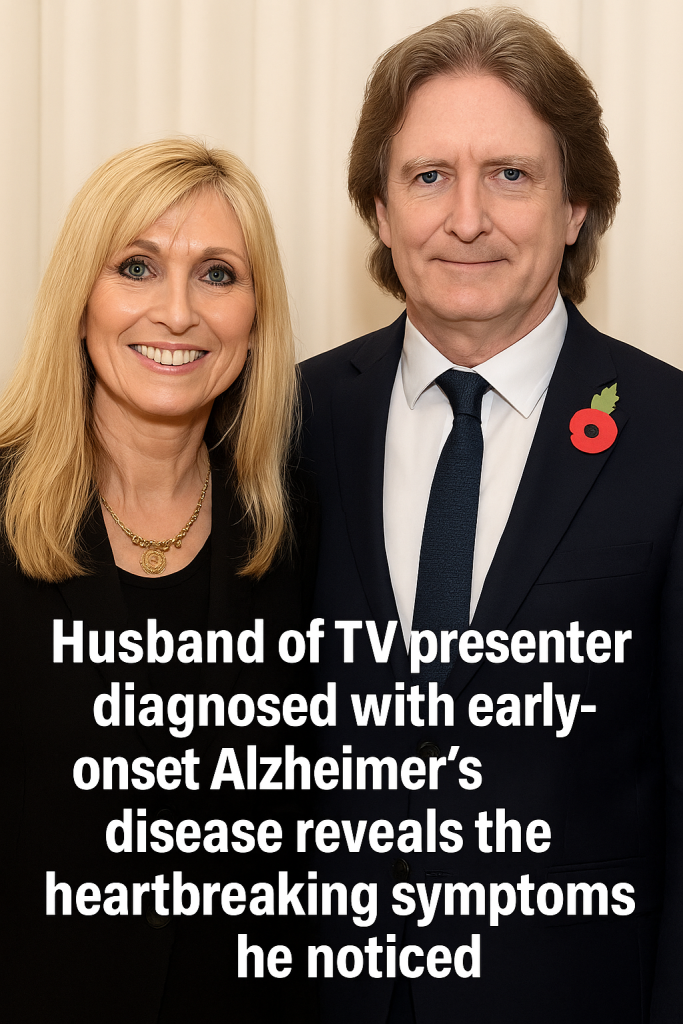Early-onset Alzheimer’s disease is a devastating diagnosis that affects thousands of families worldwide, often striking individuals well before the age commonly associated with dementia. Recently, a prominent television presenter’s husband courageously revealed the subtle yet heartbreaking symptoms that led to his own diagnosis of this challenging condition, shedding light on the often-overlooked early warning signs.
In a heartfelt disclosure that has resonated deeply across social media, the husband explained how, for a long time, both he and his loved ones had misinterpreted the initial symptoms, attributing them to stress, fatigue, or the pressures of daily life. “We had put it down to something else,” he shared, reflecting on the emotional journey from confusion and denial to clarity and acceptance.
His story began with minor memory lapses and moments of disorientation that seemed out of character but did not immediately raise alarm. Tasks he had done countless times suddenly felt overwhelming, and his ability to focus or organize daily activities diminished. These changes, subtle at first, became progressively more apparent to those close to him.
Unlike typical Alzheimer’s cases that primarily affect older adults, early-onset Alzheimer’s typically presents symptoms before the age of 65, sometimes as early as the 40s or 50s. This form is far less common but often more aggressive, placing a heavy emotional and practical burden on families. The husband’s revelation has brought much-needed attention to how crucial it is to recognize and address these early signs promptly.
Among the poignant symptoms he identified were:
- Increasingly frequent forgetfulness about recent conversations or events
- Difficulty completing familiar tasks, such as cooking or managing finances
- Disorientation in time and place, even within familiar settings
- Changes in mood and personality, including episodes of frustration and withdrawal
His testimony also highlights the emotional toll of the diagnosis not only on himself but also on his spouse, the well-known TV presenter. The couple’s openness about their experience has helped dismantle the stigma surrounding Alzheimer’s disease, especially in younger patients, encouraging others to seek medical advice if they notice similar issues.
Medical experts emphasize that early diagnosis of Alzheimer’s can allow patients and families to access vital resources, plan for the future, and explore treatment options that may slow disease progression. They advocate for increased public awareness about early-onset symptoms, which are often subtle and easily mistaken for normal aging or temporary stress.
“Recognizing the early signs can be incredibly challenging,” the husband noted. “It’s heartbreaking to watch yourself change and feel your world shifting. But knowing what’s happening can make a difference in how you face the road ahead.”
The couple continues to use their platform to educate the public, support research initiatives, and foster a community of understanding and hope. Their story serves as a powerful reminder that Alzheimer’s disease can affect anyone and underscores the importance of empathy, early detection, and ongoing support for those impacted by the condition.
For families facing similar challenges, he encourages vigilance and compassion: “If you notice something unusual, don’t dismiss it. Trust your instincts, and seek help. You’re not alone in this.”
As awareness grows, stories like this one are vital in changing perceptions, inspiring dialogue, and ultimately improving lives.



